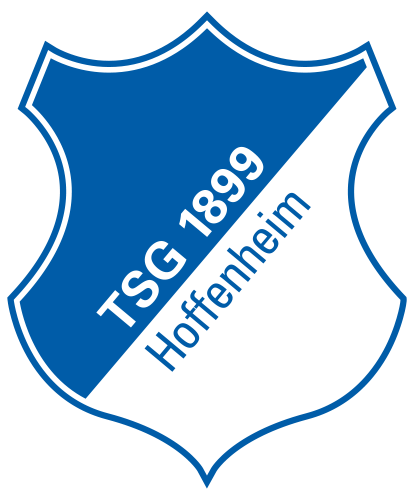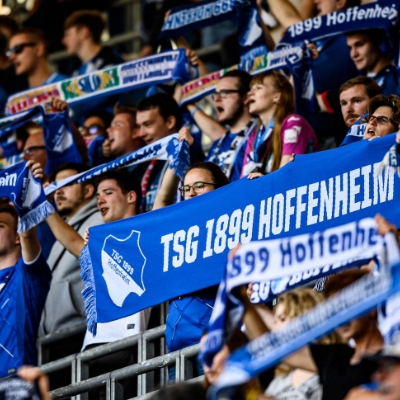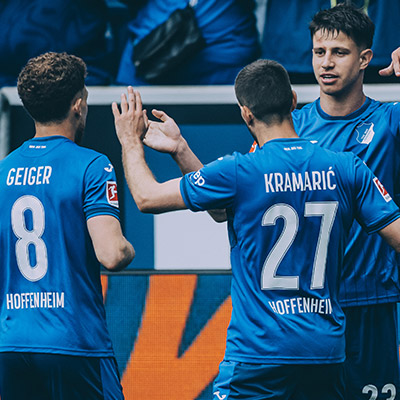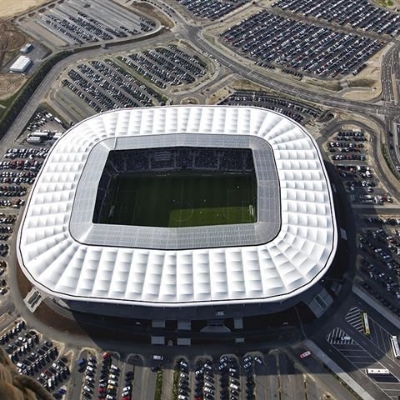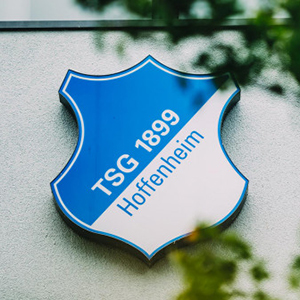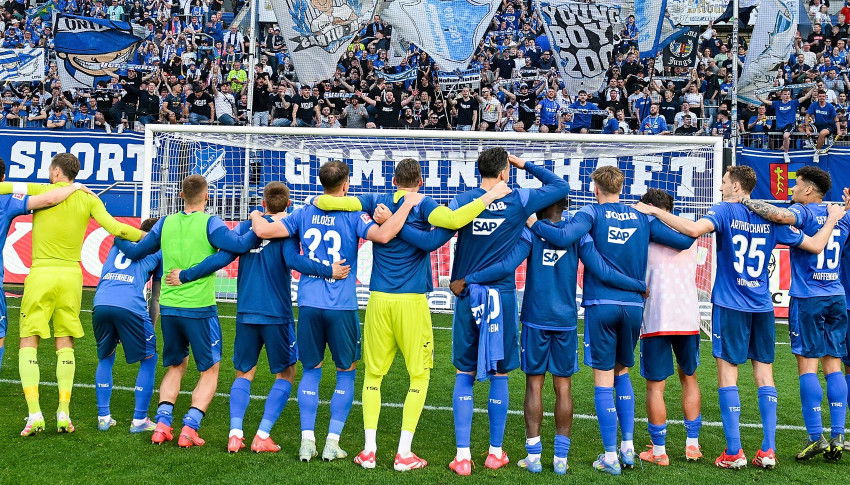Tabaković: "I've always been a hard worker"
Haris, your parents fled from Bosnia to Switzerland in 1994 during the wars in the Balkans, when your mother was pregnant with you. How was it for you growing up there?
"Fleeing from the war was a way out for my parents. They put down roots in Switzerland, even though they couldn't speak the language. I had a very normal childhood, we weren't wealthy, but we weren't poor either. A childhood as someone with an immigrant background living in Switzerland, but without any negative aspects. There was just the joy of playing football, ringing the neighbours' doorbells and all heading off to the red pitch, a football pitch belonging to the school in Grenchen, which is a small town with around 20,000 inhabitants where my older brother and I grew up."
How did your family get to grips with life in Switzerland?
"My parents worked a lot. Beyond that, their priority was that school was going well for me and my brother. Looking back, we had everything we needed, but I never had a PlayStation or anything like that. I shared a room with my big brother until I was 16 or 17. When I think back, I'm mostly proud of my parents for managing to do everything they did and for making it possible for us to have a normal, happy childhood. I know that not all children from refugee families have that privilege."
How did your parents manage to build this new life?
"At first, my parents lived in a refugee camp with other families. That was the starting point. I was very moved when I heard the stories of everything they had to give up. Obviously my mother was still pregnant with me at the time, so I didn't experience any of that. Then my dad luckily got to know a Swiss family who he was able to start working for. He was a kind of all-rounder - whether it was gardening, painting, or chauffeuring. That's how he learned a bit of German too. He's still there now, after 30 years, and so is my mother, who helped out as a cleaner. This new start definitely wasn't easy for them, and to me, it's an incredible achievement - along with the bravery that it took to flee Bosnia in the first place - to give up everything and move to a new country where you don't speak the language, at the age of 30 with a young child and another one on the way. Despite the fact that you went to university in Bosnia and founded your own company - my father even had his own chauffeur. To go from that to getting by with gardening and that kind of work so that you can give your children a new life - it's impossible to put into words. I'm eternally grateful for that, and for the fact that my parents stayed in Switzerland after the war was over."
What was the deciding factor?
"Lots of people went back, but my parents could see that Switzerland was an incredibly stable country with great opportunities for their children. It paid off. My father was very strict though, and set us an example of hard work and discipline. At the same time, he was extremely grateful for everything and very grounded. It was important to him never to show people what you had, because as a guest in this country he was always afraid that he might lose everything again. That's why he always said: I'm a worker, I'll do it, I'll give my all. He passed that on to us - although our reality was very different, of course. We could speak this language better than we could speak Bosnian, we'd grown up in Switzerland and had friends. I could make my own decisions freely. But I still believe that when you're given a chance in another country, it's all about integration. That's what we did."
What does home mean to you now?
"I have two hearts beating in my chest, but Switzerland is really my home. I was born there and grew up there. Grenchen, where my parents live, is what I associate with going home. Of course I have citizenship in both countries, but I've never lived in Bosnia. I went there on holiday every summer with my whole family. But after two weeks I wanted to go back home to Switzerland."
It sounds like the perfect integration success story. But of course there are people from refugee families who don't feel at home, and who often describe their parents' country as their home country...
"I know a few people who think like that. In my view, they feel that way because they haven't built such a strong connection to their new country. It is important that you understand - in my case - how the Swiss tick, what they're interested in. If that doesn't interest you, if you don't integrate, and instead you think to yourself: 'I'm a foreigner, Bosnian, Turkish, whatever', then it won't work. There are lots of people like that. The way I speak and the way I behave make me stand out from lots of people with a similar background. But I'm not judging them at all. For me personally, it's about how people act towards me, regardless of where they come from. The most important thing is treating people with respect. You can do whatever you like, but you need to integrate yourself into your new country, into its system and society. I always internalised that, and that attitude has helped me a lot."
Do you think that you wouldn't have got as far as you have if it wasn't for your unique background?'
"Yes. I was always a very, very hard worker. My mentality was shaped by my childhood. We never used to have a free afternoon. When I didn't have training, I helped my father with his jobs. That had an influence on me in terms of my career later on. For me, mentality and hard work count for more than talent. I live by that, and that's what sets me apart - and when you look at my career, you can clearly see it. The period of time when I was training to be a bank clerk wasn't easy because I had to juggle my commitments. But I got through it and I'm proud of that. This attitude is the most important foundation for a career. Diligence and hard work are non-negotiable. And that's what makes me stand out as a footballer too."
Is it maybe also because football only became your focus later on, and a professional career was more of a dream than a realistic goal?
"I always loved playing football. But my education was more important to my family. I was playing in Grenchen at the time, and then I started an apprenticeship to become a bank clerk when I was 15, 16. Professional football wasn't on the cards at all. Then all of a sudden I was scouted and got the chance to train with the Young Boys from Bern, while still playing in Grenchen. Working in the mornings and giving my all at training in the evenings. It was completely normal - giving up my apprenticeship for football was out of the question. After the first year of the apprenticeship (normally it's three), Bern really wanted me for the Under-17s squad. I went to my boss at the bank and asked her how it could work. It was an hour by train to Bern, and my parents couldn't drive me there because they had to work. Then my boss recommended a sports academy in Bern. I was able to extend my apprenticeship to four years so that I could go to training. To this day I'm grateful for that opportunity."
What did your daily routine look like during that time?
"I was in my suit and at work at eight o'clock. I was always one of the first ones there because I had to leave at 16:00 at the latest. Then I would run home, take off my suit, grab the bread roll my mum had made for me, hop on the train to Bern, go to training, and then come home again around 22:00. It was like that for three years, until I passed my final exam. Only then did my father say: 'Okay, now you can be a footballer' - although I'd already signed a professional contract by that time. For him, football didn't have anything to do with earning money or a professional career. It was secondary - for him, football was just 'blah blah.' But I'm glad that the apprenticeship was so important to him. I almost wish that he'd pushed me even more in terms of my career."
Why?
"When I was playing professionally in Bern, I could easily have studied as well. I have a gap of around seven years - from 19 to 26 - when I wasn't doing anything apart from football. I could have used that time better. I now know that it's good for you to do something for your mind on the side. Alongside my career, I've now gained a sports management certificate from the ESM in Nuremberg, and I've also got onto the FIFA Diploma in Club Management."
Do you feel satisfaction when you look back at what you've done so far?
"Yes, but that doesn't have anything to do with my career in football. It's about the kind of person I've become. Without sport, I could've pursued my career in banking and I would've been proud too. That would've even made my parents prouder at the time. I think that's also why my brother is sort of my parents' favourite. (laughs). I moved out when I was eighteen and I lived abroad. He was always there, he studied Economics after his banking apprenticeship, lived at home until he was 26, became a father, and has an impressive banking CV. He's always had that closer relationship - but that's just how it is when you're a footballer: you have to make decisions, step out of your comfort zone, and invest everything in your dream. And that's what I did."
You come across as very light-hearted. But has there ever been a phase when you've maybe been a bit arrogant?
"No, I've never been arrogant, if nothing else because of the way I was brought up. But of course as a young footballer I made mistakes too. When I went clubbing, I did feel like the club belonged to me. But I think that that's just human when you're still very young, you're playing for the junior national team, and there's suddenly this hype. Back then I used to think: 'Now I need this expensive T-shirt.' Now I would say: 'What's wrong with you?' But you have to go through these kinds of phases. During that time when I was a top talent though, there were other things that meant I didn't make it to the top. I just wasn't ready yet when it came to the decisive moments."
In what way?
"When it came down to it, I was scared about performing. On weekends when there were important matches, I would suddenly get ill or injured. In my opinion, it was a subconscious reaction. My body did it out of fear to avoid being put to the test. And that meant that when I was 18, 19, I just wasn't ready for the big stage, the next step - regardless of how talented I was. I had doubts. But in the end I worked hard and I was rewarded."
Has there been a key moment in your career?
"When the pandemic started, I ended my contract in Hungary, I just wanted to go home. Over the summer I didn't have a contract, and then Austria Lustenau from the Austrian second league made me an offer. You can imagine that it was very difficult for my ego, after previously playing for big clubs like GC Zürich or Young Boys. When I was 18, I was supposed to be one of the most talented strikers around, and then at 26 I transferred to the second league in Austria. But it was a decisive moment: either I would manage to turn things around, or I would go back to Switzerland and get a regular job. In the end, it was the most important step I've taken in my life. I regained trust in my body, I found joy in playing football again. I also met my wife during that time. I became the top goal scorer at the club, we got promoted, and for me things started to improve each year. Now I'm married and I'm playing in the German Bundesliga. That decision was a blessing for me."
Your journey took you to the Bosnian national team, and to Germany to play at Hertha BSC. You lived in an exciting city, played for a big club, and were celebrated as a top goal scorer. But you still decided to change clubs. Was it that you couldn't miss the chance to play in the Bundesliga?
"When I was playing for Austria Wien, I also wondered about whether I should really leave the club. I was one of the most important players and we could have played at international level. They also offered me a long-term contract with a follow-up position. What did I do? I went to Hertha to play in the second Bundesliga in Germany. Lots of people couldn't understand that. But playing in front of 60,000 people, living in Berlin - I had to do it. Players like me only get a chance like that once in a lifetime. I had a similar feeling when I started getting offers from Bundesliga clubs after my season as top goal scorer. No matter how incredible Hertha was, how incredible Berlin was - I'd had this dream in my head since I was 18. I didn't manage it back then, and now, at 30, I wanted to fulfil it. I wanted to prove to myself that I could do it. I'm really living a life where there isn't a limit, because I've always achieved more than I imagined I would. When you set a limit for yourself, then you're already writing yourself off."
Why did you choose TSG?
"Hoffenheim has been a solid club in the Bundesliga for years and has incredible opportunities for its players. You can grow as a person and improve as a player here. I also really wanted to play in the Europa League - it all just fit."
In the Bundesliga you haven't been able to build on your goal-scoring record from the second league. Did you expect that, and do you feel any dissatisfaction?
"I definitely didn't expect it. And I'm happy to admit that of course I'm not satisfied. My results aren't good enough for a striker. But I think that there have also been a few things which weren't in my favour. It was a turbulent first year, also in terms of our results as a team. I was also new to the team, I've hardly played, and we had a change of coaches and a new philosophy. Our position in the table isn't easy. But even so - I've been written off many times before, and I've still always come back again at some point (laughs). It's the same this season. I came back, was suddenly the first substitute, and then I was in the starting eleven. Of course, being a striker is about scoring goals, but it's also about what I bring to the team when I'm playing, what I bring to it when I come on. If it's something positive, that's a good sign. It shows you that you can perform in the first league too."
Recently you've been on the pitch for every game...
"I'm starting to feel like whenever I'm on the pitch I can make a difference. That's the first step. Personally, I don't mind how much people write me off. Of course I go home and feel annoyed when that happens. But I know by now that I fight, I do everything I can for my place and for the team. And at the end of the day, here I am."
Does the current situation offer you a chance to save the season for TSG but also personally for yourself with a crucial goal?
"Our position in the table is definitely challenging, I haven't experienced this before. But it's definitely the case that I am extremely motivated by these last few games. These games are so important for the club, the fans and the team. For me it means that I can give my all to make sure the club stays in the Bundesliga. The last few games of the season can change a lot for us, so I see them as an opportunity. That's how every one of our players should see them. If you go into the end of the season with fear, it's over. But if you see it as a huge opportunity, you can really achieve something. And my journey has taught me that you'll be rewarded if you work hard for your goals."



